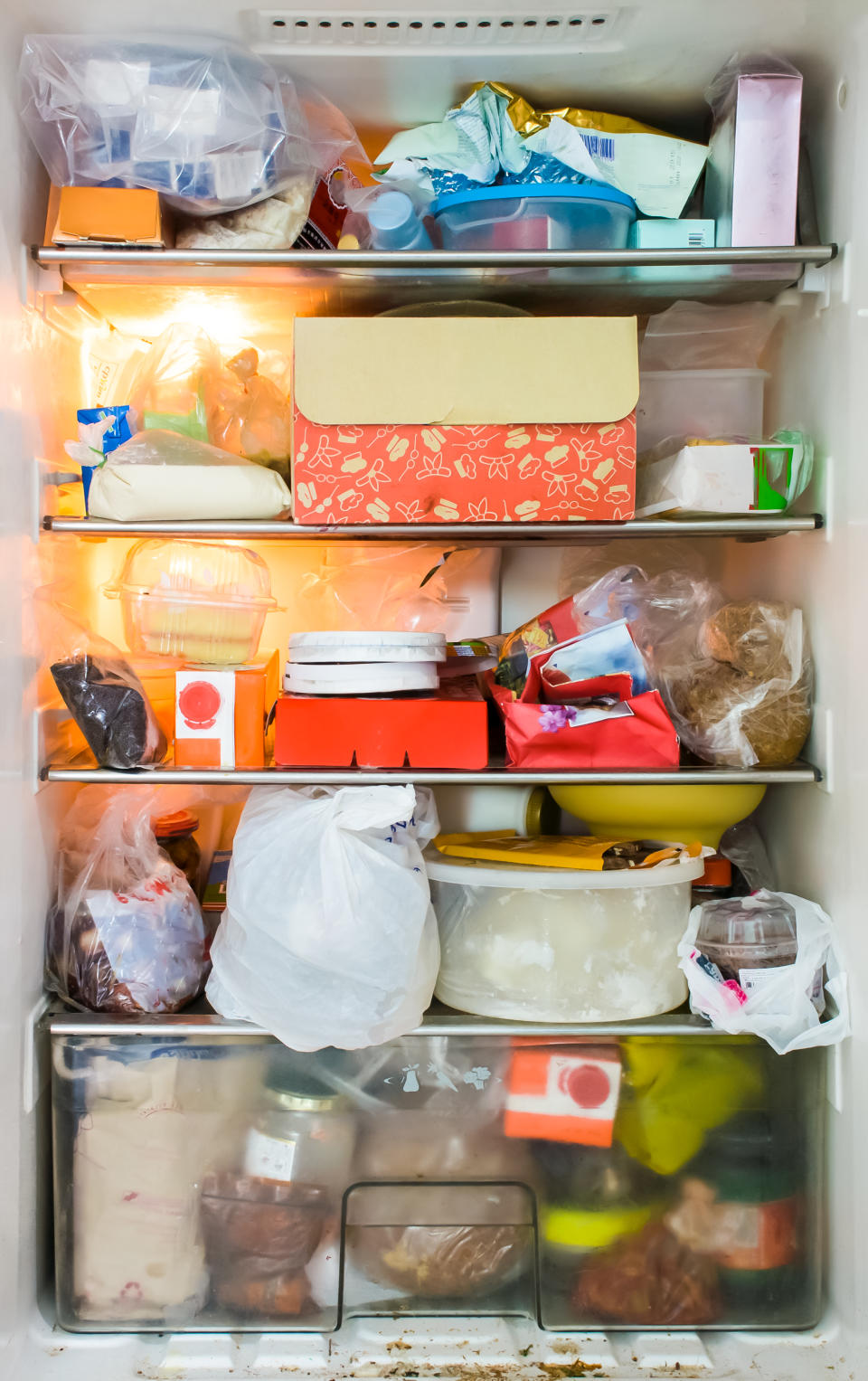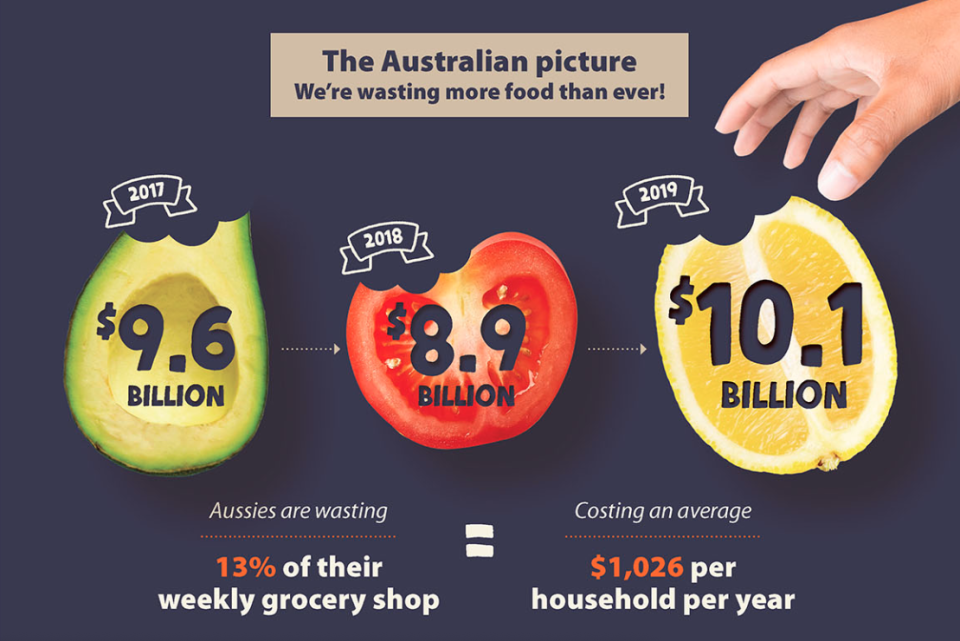The household habit costing Aussies $10 billion a year
The bad habits of Aussie households are not only costing the environment but also wasting a whopping $10.1 billion a year.
Every Australian is wasting on average 289 kilograms of food a year, and the nation is shockingly the fourth biggest food waster in the world.
According to Rabobank’s 2019 Food Wastage Report, the average household is dumping $1026 worth of food in the bin rather than their stomachs every year.
Rabobank Australia’s head of client experience, Glenn Wealands, said it was one of the most significant problems facing the country today.

The biggest food waste offenders are consumers, with households the cause of a whopping 34 per cent of food wastage.
“As individuals, each and every one of us can and must make a difference,” Mr Wealands said.
“When we waste food the ramifications are far beyond just dollars, impacting our planet and precious resources. We know from this research that more than three quarters of us care about reducing food waste, and we are annoyed by it.
“However, it is alarming that less than three out of 10 of us recognise the impact our food waste has on the environment.”
The groups wasting the most food
According to Mr Wealands, Aussies are finding new ways to waste food.
“We have the age old culprits which still sit front and centre in terms of why we’re wasting, but there’s a new dynamic bubbling to the surface in terms of food waste and that’s online delivery,” he said at the launch of the Rabobank report on Tuesday.
Australians ordering food to their door rose from 35 per cent to 45 per cent within the space of a year and at times those people have eyes bigger than their stomachs.

“This group tends to waste the most,” Mr Wealands said.
“The average number of our population is wasting about 13 per cent, but within this group it’s 16 per cent.”
Why Australians could be forced to use up to six rubbish bins
Retailers offer end-of-day discounts in a bid to end food waste
Mr Wealands said ultimately food wastage came down to poor planning.
“We shop and purchase food on an inspirational basis rather than thinking about it, so you have good intentions and go to the supermarket but you may not have a shopping list,” he said.

While we may think we have our meals carefully thought out for the week, Mr Wealands said often people ditched their dinner plans in favour of going out for a meal or ordering in.
“A lot of waste occurs from spontaneity, particularly with younger generations,” he said.
How can we waste less food?
Mr Wealands says people needed to be more creative when it came to using leftovers.
Generation Z are the biggest culprits when wasting food over boomers, despite them being more environmentally conscious.
Gen Z are binning $1446 worth of waste a year, according to the Rabobank report, compared to the $498 wasted a year by Baby Boomers.

But Mr Wealands suggests the reason is older generations are more imaginative when it comes to creating recipes using leftovers, something younger people are urged to take on board.
“Some of the best meals happen two or three days after that original meal preparation,” he said.
Mr Wealands also suggested office initiatives like bring leftovers to work day, a fridge magnet where people could write down a shopping list and simply having the refrigerator rule of first in, first out.
“It’s simple things where you put the best produce at the back of the fridge to naturally encourage a reduction of food waste,” he said.
Do you have a story tip? Email: newsroomau@yahoonews.com.
You can also follow us on Facebook, Instagram and Twitter and download the Yahoo News app from the App Store or Google Play.




